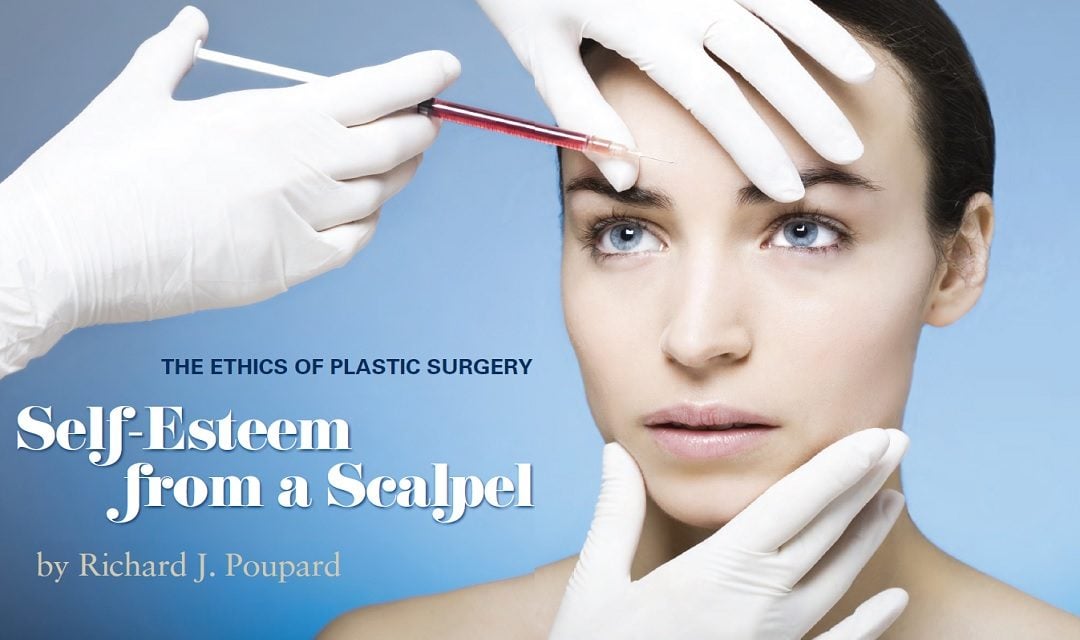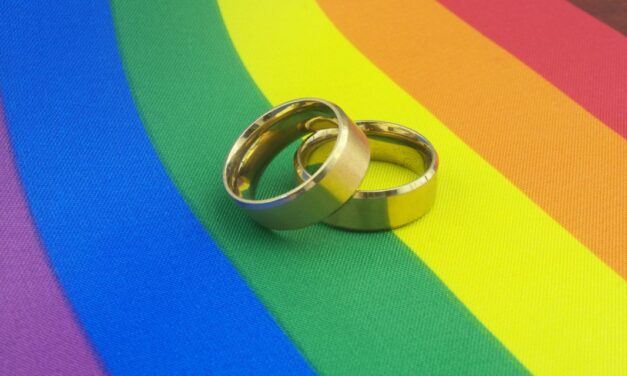This article first appeared in the CHRISTIAN RESEARCH JOURNAL, volume 33, number 04 (2010). The full text of this article in PDF format can be obtained by clicking here. For further information or to subscribe to the CHRISTIAN RESEARCH JOURNAL, click here.
SYNOPSIS
The numbers of patients seeking plastic surgery has skyrocketed in the past decade, and this practice has found increasingly uncritical acceptance. Plastic surgery is commonly subdivided into reconstructive surgery and cosmetic surgery. Reconstructive surgery seeks to restore form and function of a defect in the body, and therefore is a positive moral good that mitigates the effects of the fall. Cosmetic surgery differs in that we are seeking to augment otherwise healthy tissues to improve appearance and self-esteem. Looking through the light of Scripture, I do not believe we have license to condemn all forms of cosmetic surgery. We should be discerning, however, regarding our motivations for pursuing cosmetic surgery. First, we should be careful if our motivations for surgery are principally to increase our self-esteem. The evidence shows the long-term effects of cosmetic surgery are not universally positive, and we should be esteemed not based on our own image, but the image of the God who created us and died for us. Second, we should consider whether our goal for surgery is to normalize our appearance or to enhance our bodies to approximate a perfect ideal. If cosmetic perfection to increase the attention others give us is our motivation, we may not be adhering to the principle of biblical modesty. Last, surgical enhancement supports the idea that our bodies are ours to modify without limit.
As an oral maxillofacial surgeon, one of the surgeries I perform is corrective jaw surgery. Corrective jaw surgery is performed by fracturing wrongly aligned upper and lower jaws and fixating them in their proper position. When orthodontic braces are unable to place teeth in their proper position for correct function, surgery is often recommended to align teeth and achieve a correct bite. Although primarily functional, there is unquestionably a cosmetic aspect to the surgery. A quick perusal of the available patient information given out by doctors and their practices shows a number of before and after pictures demonstrating a positive aesthetic change after the surgery.1 In discussing the ethics of plastic surgery, I wish to contrast the experience of two of my patients.
The first young woman presented with a lower jaw too short, an upper jaw too narrow, and her front teeth did not touch. In other words, her bite was very misaligned. She also complained that her chin was “way too big.” I explained the treatment plan, addressed her problems, and showed that the planned surgery should also help her chin to look smaller. We performed extensive surgery on both jaws so her teeth fit properly together. After she recovered from the procedure, her bite was functioning ideally, and she was overwhelmingly happy about her physical appearance. She then moved out of town and we lost contact for a period of time.
Two years later, she returned to my office. She unfortunately had been having complications from her surgery. The movements we made to her jaws showed evidence of surgical relapse, so her teeth no longer fit correctly together. She was also experiencing some pain in her jaw joints, but the aesthetic changes brought about by the surgery had not changed. In other words, she was still very satisfied with her appearance. I gave her options for more corrective surgery, but she smiled and told me that even if her pain increased tenfold and she could no longer enjoy a steak, the surgery that I performed was the best thing that she had experienced. She was now so happy with her appearance that she was not interested in having her functional issues addressed.
Shortly after, I did another jaw surgery on a second woman who was slightly older than the first. She also had a bite that was misaligned, but not nearly to the extent as the first patient. She had very few complaints about her physical appearance. I performed conservative surgery on her upper and lower jaws, and placed her teeth into an ideal position. After her initial recovery period, she returned to my office quite upset. Although her teeth fit together perfectly, she felt that she “looked older.” We compared the before and after surgery photographs and there was no discernable change in her appearance. From every objective standpoint, the surgery went exactly as predicted with no complications. However, she was still very disappointed with the outcome, and soon left our practice.
These two stories illustrate some of the challenges we have in evaluating the ethics of plastic surgery. Which surgery, for the two women that I treated, was successful? The first did not correct the functional problem but the patient was happy. The second corrected the functional deformity perfectly but the patient was unhappy. Should we base success on how well a surgeon corrected the pathology or how the patient feels about herself even if the pathology is not cured? Is our goal as surgeons to correct deformities or give our patients greater self-esteem? In other words, should the goal of a surgical procedure be to correct a physical problem or to change our physical appearance to correct a psychological one?
A BRIEF HISTORY
Plastic surgery is not new, and most of the techniques that are used today were developed by treating wounds sustained by soldiers in the two world wars.2 The term “plastic” surgery comes from the Greek word plastikos, which is to mold or shape. Plastic surgery itself is subdivided into reconstructive surgery and cosmetic surgery. Reconstructive surgery is performed on abnormal tissues of the body in order to improve form and function. There is an aesthetic component to many reconstructive procedures, but the main goal is to restore the general function and appearance of the abnormal tissues. Examples of reconstructive surgery would be cleft lip/palate repair or breast reconstruction after a mastectomy.
According to the American Society of Plastic Surgeons, cosmetic surgery “is performed to reshape normal structures of the body in order to improve the patient’s appearance and self-esteem.”3 Examples would be a facelift or breast augmentation. These are not perfectly distinct categories, and there are a number of procedures that lie between strictly reconstructive or cosmetic in nature. The important distinction is that cosmetic surgery does not attempt to cure any deformity or abnormality, but serves to make someone look more attractive.
There is no question that the popularity of cosmetic surgery has skyrocketed in our lifetime. Shows such as Dr. 90210 and Nip/Tuck bear evidence of our changing attitudes, and cosmetic procedures have become increasingly commonplace and uncritically accepted in our culture. According to the American Society of Plastic Surgeons, the numbers of breast augmentations have risen more than eight hundred percent in the past fifteen years.4 Despite the fact that most cosmetic procedures are not covered under medical insurance programs, Americans spent more than ten billion dollars on cosmetic surgery in 2008.5 This increase in popularity was not limited to adult patients. There has been a great increase in the number of younger patients contemplating cosmetic surgery.6 In fact, the number of cosmetic surgical procedures on patients eighteen and younger tripled from the ten-year period between 1997 and 2007.7 Controversial procedures in this age group, such as liposuction, increased greater than three times, and breast augmentations increased more than six-fold during the same ten-year period.8 It is very likely that we personally know of someone who has had cosmetic surgery, and increasingly likely that our teenage children have peers that have elected to have their growing bodies surgically enhanced.
THE ETHICS OF RECONSTRUCTIVE SURGERY
Christians believe that human beings are created in the image of God. One of the consequences of the Fall is that we are subject to sickness and pathology. God, in His mercy, gives the human race the ability to subdue the creation and mitigate the effects of the Fall. The main purpose of medical science is to treat sickness and disease, thus helping to alleviate suffering. This is not only the case for surgery, but for all other types of medical treatment.9 Reconstructive surgery is simply the application of this principle when there is a pathological, congenital, or traumatic defect. Since the goal in reconstructive surgery is to restore form and function to damaged tissue, this type of surgery is a moral good. For example, to treat breast cancer, many women will need mastectomies to remove the cancerous tissue. Reconstructing the breast in these instances is an attempt to restore normal form and function. Although there is unquestionably an aesthetic component to this decision for many patients, the primary goal remains to restore the body to its previous nonpathological condition. Another example of this surgery is cleft lip and palate surgery. A cleft lip or palate is caused by a disruption in fetal development that results in a very obvious defect of the lip and other facial structures. The surgical correction consists of multiple surgeries to reapproximate the facial structures to their proper function and, whenever possible, their proper form. This is true of virtually all forms of reconstructive surgery.
THE ETHICS OF COSMETIC SURGERY
Cosmetic surgery differs because there is not a restoration of pathologic tissue, but an augmentation of healthy tissue. There historically has been controversy regarding cosmetic surgery because it was seen to corrupt the natural body-self relation.10 This argument, however, as well as the stigma behind cosmetic surgery procedures, has largely faded from our culture. Does the fact that we are operating on otherwise healthy tissue make cosmetic surgeries unethical in all circumstances? I believe there are a number of reasons why we should not make this blanket condemnation. First, there is no specific biblical prohibition against changing the appearance of our physical bodies. Second, we do not consider other means to improve our outward appearance unethical. For example, few would argue that all forms of makeup, grooming, and fashionable clothing are intrinsically immoral behaviors. In short, the freedom we have in Christ along with the guidance of our own conscience should lead us regarding behaviors that are not specifically prohibited. For this reason, I can find no reason to find cosmetic surgery intrinsically immoral.
Yet, although a specific action may not be intrinsically immoral or scripturally prohibited does not mean that it is profitable in every circumstance. We may be tempted, due to our sinful hearts, to engage in an activity for immoral goals or reasons. Our motivations for pursuing cosmetic surgery have an important impact on the ethics of the act itself. For this reason, there are some important caveats to consider when discerning the ethics of cosmetic surgery.
SELF-ESTEEM FROM A SCALPEL
A common thread through most of the plastic surgery literature is the concept of improving self-esteem through the surgical alteration of the physical body. A Web site designed to help you find a plastic surgeon exemplifies this when it claims to know “five reasons why plastic surgery will make you happier.”11 Reason number one claims that plastic surgery lowers the need for antidepressant medication. Why take medication for your depression when you can treat it by having a surgeon make you more attractive? Reason number four states that “cosmetic surgery can add years to your life and boost your self-esteem.”12 Who wouldn’t want to look better, have greater self-esteem, and live a longer life merely by having his body made more attractive?
Is cosmetic surgery really surgery on the body or on the mind? Sander Gilman reports, “Over the past decades people have turned more and more frequently to their surgeons rather than their psychotherapists in the pursuit of the ‘body beautiful’ to achieve a ‘healthy psyche.'”13 The goal of the surgeon is not to correct deformities, or even to reshape normal tissue into something more aesthetic. The real goal, and ultimate measure of success, is whether or not the procedure has resulted in the nebulous quality of “increased happiness” in the patient. Happiness, in this context, is not the classical notion of happiness, but a general feeling or emotion of pleasurable satisfaction.14
So has the increase in cosmetic surgery that we have seen resulted in an increase in personal happiness? Not according to the available evidence. A recent study in Clinical Psychology Review compared college students from 1939 and 2007. The study showed a six-time increase in the number of students showing symptoms of depression and “anxiety and unrealistic optimism” in 2009 as compared to the students during the Great Depression era.15 Although there are no doubt a great many variables other than cosmetic surgery that influence such a large increase in depression, the evidence isolating cosmetic surgery is no more favorable. One study showed ten years after having a breast augmentation, there was a threefold increase in the number of suicides compared to women who did not have breast augmentation surgery.16 A review study from 2004 looked at psychological outcomes for patients who were seeking cosmetic surgery.17 They found that patients who were young, had unrealistic expectations, had a minimal deformity, had previous surgeries, were motivated by relationship issues, or had a history of depression or anxiety disorders were far more likely to feel worse after having cosmetic surgery. There were patients who reported that they were satisfied with their surgery, but in some sense, the patients that were most in the need of a “happiness infusion” were the ones most disappointed with their cosmetic results. This was the case regardless of the technical success of their operations. Making someone prettier does not always make her happier.
Many patients who are dissatisfied feel more damaged than they did prior to the procedure. This leads them to continue to seek other operations in order to heal their damaged bodies, and frequently their minds. This practice, unfortunately, may be encouraged by other cosmetic surgeons, who promise to “fix” the mistakes the other surgeon caused. This may set up another unrealistic expectation that will not be met. This cycle is often referred to as plastic surgery addiction. Virginia Blum describes a patient named “Barbara” who has had numerous facelifts and other procedures in order to help keep her husband from continuing multiple extramarital affairs.18 She looked forward to seeing her surgeon, believing that he would take care of her, even if her husband would not. Her view of the surgeon’s role: “To rescue the fair princess, unlock the crone body in which she is trapped, [and] release her to her real and happy life.”19
This whole idea has wrought unintended changes in the doctor-patient relationship. Cosmetic surgeons no longer have “patients” for whom they diagnose and treat illness, but rather “clients” that demand happiness from the resculpting of their otherwise healthy bodies.20 Even when a patient does not come in with a specific complaint, many surgeons are very willing to offer suggestions on how their skills can improve their appearance. Melanie Berliet, a five-foot-nine twenty-seven-year-old woman who had worked as a model, set out to find what a plastic surgeon would recommend to her.21 During one of her undercover consultations, the surgeon recommended liposuction, breast augmentation, reduction rhinoplasty, Botox injections in the forehead and Restylane injections into her lips. The total cost of the proposed surgery was $33,000. Berliet admits, “By this time my self-image is so battered that, had I the money, I sincerely doubt that I could refuse.”22 If a cosmetic surgeon is short on clients with self-esteem issues, he may simply create some.
WHOSE IMAGE SHOULD WE BE GLORIFYING?
Examining this view in the light of Scripture shows that our self-esteem should not be based primarily on our physical appearance. Jesus Himself is described in Isaiah’s prophecy as one “with no form or majesty that we should look at him, and no beauty that we should desire him” (Isa. 53:2).23 Human beings have intrinsic value because we are created in the image of God. Our value does not depend on, nor is it altered due to, the attractiveness of our bodies, “for the Lord sees not as man sees: man looks on the outward appearance, but the Lord looks on the heart” (1 Sam. 16:7).
There is no doubt that many consider themselves unattractive, either based on a disfiguring pathology or simply because they don’t “fit in” in our beauty-obsessed culture. Surgically changing the outward form of their bodies may in many cases increase self-esteem, at least for a time. There is no question that we can get an emotional lift when we believe we feel attractive on a particular day. The difficulties begin, however, when we become dependent on that emotional lift from our own attractiveness as essential to our value. Furthermore, when parents convince their children that cosmetic surgery is necessary for their self-esteem, the unavoidable message is that we are valued based predominantly on our outward appearance.24
This is not to say that there is anything wrong with a desire to be attractive. Being a good steward of the body given to us is a positive good. There is nothing wrong with taking a glance in the mirror when wearing a particularly attractive dress or feeling satisfied with the results of a month-long workout program. I don’t believe there is any virtue in intentionally allowing ourselves to become unattractive, or in highlighting a particularly unattractive aspect of our physical self. The problem ensues when we value ourselves predominantly on the image that we see as we look into that mirror. If our motivation for undergoing a permanent surgical change is to increase the value we have in our own eyes when we peer at our image, then we are looking at the wrong image for our esteem. It is not our image that gives us value, but the God in whose image we were created. Regardless of how we look on the outside, this should not be forgotten.
NORMALIZATION OR SUPER-HUMAN ENHANCEMENT?
There is another consideration in analyzing the ethics of cosmetic surgery. Cosmetic procedures run the gamut from the removal of a small benign “birthmark” on an infant’s forehead25 to the many procedures that Michael Jackson is purported to have done. In examining the motivation behind these surgical interventions, it may be helpful to differentiate between two types of cosmetic surgery. A procedure such as the removal of a visible, unaesthetic birthmark is attempting to change a physical “abnormality” into a more normal situation. On the other hand, someone returning multiple times to multiple surgeons to get their nose “just right” is attempting to enhance their normal anatomy to some perfect ideal. We can visualize this by looking at a continuum with the concept of “normal” at the center, and “abnormal” and “perfect” at the extremes. Some patients believe they are on the “abnormal” side of the continuum and their goal for their surgery is to look “normal” for the first time in their lives. The goals of other patients are to enhance their normal-looking bodies in an effort to approximate perfection. The ethics of these individual motivations may differ.
There are nuances to this evaluation. An obvious one is who decides the characteristics that make us “normal”? If normal is culturally determined, the greater numbers of individuals having cosmetic surgery is moving the standard. The standard of “pretty” was always somewhat pliable, but now we have to contend with the greater number of surgically enhanced bodies to change that standard even more. Regardless, there seems to be delineation between those who seek cosmetic surgery to not draw attention to their appearance, and those undergoing cosmetic surgery for the reason to draw more attention to their appearance. Motivations for cosmetic surgery that go beyond “normalizing” one’s appearance are problematic for at least two reasons.
First, Scripture gives us guidelines on the principle of modesty. For example, Michelle Brock describes biblical modesty as “an attitude of humility that seeks to please God rather than man or self. It is characterized by self-control, and dignity in dress, speech, and actions.”26 Having surgery in order to enhance our bodies to some perfect ideal is an attempt to draw more attention to ourselves and therefore may not be modest. Since ninety-one percent of cosmetic surgery is performed on women, there is a great chance that the motivation for beautification often encompasses looking more sexually attractive to men.27 Unfortunately, we cannot choose whose attention we are drawing, possibly causing others to stumble and lust after our sensual bodies. In contrast, Scripture describes a woman’s beauty as the “the hidden person of the heart with the imperishable beauty of a gentle and quiet spirit” (1 Pet. 3:4). Once again, this is not to say that wanting to look our best is wrong, but that we should be cautious when our desire is to seek more attention or worth from our enhanced physical bodies.
Second, there is an ongoing debate in bioethics concerning the idea of human enhancement. The rapid development and popularity of enhancement cosmetic surgery is being used as a template to analyze how we may choose to augment our bodies in other ways in the future. Mary Devereaux states, “Cosmetic surgery thus provides a natural starting point for an investigation of the likely future of medical enhancement.”28 If this is the case, then the future of medical enhancement will be based solely on our subjective standards of what we desire or what will makes us happy; at least until we need another enhancement to bring us closer to our idealized standard of perfection. Medical professionals may cease to exist to cure disease. They will instead use their knowledge and skills to make us more enhanced. The standard of success will be the subjective feelings of good we receive when allowing a physician to modify us. In other words, if the future patterns of medical enhancement follow the current trend of cosmetic surgery, we will gladly and voluntarily give up resources to receive treatments that give the promise of happiness. The late columnist William Safire stated: “Tomorrow we can expect a kind of Botox for the brain to smooth out wrinkled temperaments, to turn shy people into extroverts, or to bestow a sense of humor on a born grouch. But what price will human nature pay for these non-human artifices?”29 Our voluntary attempts for superhuman enhancement may actually modify or remove characteristics that help define our shared humanity. This is a future that causes concern.
TURNING MEDICINE ON ITS HEAD
The modern concept of cosmetic surgery and its uncritical acceptance and popularity in our culture has turned some aspects of medicine on its head. For example, for years medical science has sought to eliminate food-borne disease. One of the more rare but dangerous food-borne diseases was botulism, which produced paralysis in the facial nerves and could become lethal when it spread. After isolating the pathogen that caused botulism, we began to use it therapeutically to treat illnesses such as muscle spasms and excessive blinking. The same toxin that caused lethal paralysis is now injected voluntarily as Botox into over two million patients a year in order to smooth out undesirable wrinkles. The same chemical that caused a dreaded disease is now used to paralyze completely healthy and functioning facial muscles and is the most common minimally invasive cosmetic procedure performed today.
What does this tell us about the culture that we live in? We live in a world in which physical appearance is so important that many individuals believe that growing old gracefully means injecting your wrinkled face with a toxic chemical. Our world unquestionably equates physical attractiveness with inner happiness and self worth. Should Christians acquiesce to this notion?
We will never find the perfect ideal from a surgeon’s scalpel or needle. The short-lived boost of happiness that we may receive from having our faces or bodies surgically augmented does not have the ability to satisfy the great longing for perfection that exists in our hearts. The only possible way to true happiness and perfection is to grow in conformity to the image of Christ, the Creator of all beauty and life.
Richard J. Poupard is a board-certified oral and maxillofacial surgeon in private practice in Midland, Michigan. He is a speaker for Life Training Institute and a frequent contributor to the LTI blog.
NOTES
- For example, American Association of Oral and Maxillofacial Surgeons, “Jaw Surgery,” http://www.aaoms.org/jaw_surgery.php (accessed February 17, 2010).
- Sander Gilman, Making the Body Beautiful: A Cultural History of AestheticSurgery (Princeton, NJ: Princeton University Press, 1999), 13.
- American Society of Plastic Surgeons, Plastic Surgery FAQ: What is the Difference between Cosmetic and Reconstructive Surgery, http://www.plasticsurgery.org/Patients_and_Consumers/Plastic_Surgery_FAQs/What_is_the_
difference_between_cosmetic_and_reconstructive_surgery.html (emphasis added) (accessed February 20, 2010). - American Society of Plastic Surgeons: 2009 Report of the 2008 Statistics, National Clearinghouse of Plastic Surgery Statistics, http://www.plasticsurgery.org/Media/stats/2008-UScosmetic-reconstructive-plastic-surgery-minimally-invasive-statistics.pdf (accessed February 23, 2010).
- Ibid. The actual number of procedures is higher, because this source is only counting procedures done by members of the American Society of Plastic Surgeons. Many other medical specialists and even generalists perform cosmetic surgical procedures.
- Bill Tancer, “The Young and Plastic Surgery Hungry,” Time, May 7, 2008.
- Camille Sweeney, “Seeking Self-Esteem through Surgery,” New York Times, January 15, 2009.
- Ibid.
- A more robust version of this argument is found in Scott Rae, Bioethics: A Christian Approach to Bioethics in a Pluralistic Age (Grand Rapids: Eerdmans, 1999), 97-101.
- Victoria Pitts-Taylor, Surgery Junkies: Wellness and Pathology in Cosmetic Culture (New Brunswick, NJ: Rutgers University Press, 2007), 17.
- http://www.locateadoc.com/articles/five-reasons-why-cosmetic-surgery-makes-you-happier-1514.html (accessed February 4, 2010, emphasis added).
- Ibid.
- Sander Gilman, Creating Beauty to Cure the Soul: Race and Psychology in the Shaping of Aesthetic Surgery (Durham, NC: Duke University Press, 1998), 24.
- A deeper discussion of the concept of happiness is found in J. P. Moreland and Klaus Issler, The Lost Virtue of Happiness: Discovering the Disciplines of the Good Life (Colorado Springs: NavPress, 2006).
- Jean Twenge et al., “Birth Cohort Increases in Psychopathology among Young Americans, 1938-2007: A Cross-Temporal Meta-Analysis of the MMPI,” Clinical Psychology Review 30, 2 (2009): 145-54.
- L. Lipworth et al., “Excess Mortality from Suicide and Other External Causes of Death among Women with Cosmetic Breast Implants,” Annals of Plastic Surgery 59, 2 (August 2007): 119-23.
- Roberta Honingman, “A Review of Psychosocial Outcomes for Patients Seeking Cosmetic Surgery,” Plastic and Reconstructive Surgery 113, 4 (April 1, 2004): 1229-37.
- Virginia Blum, Flesh Wounds: The Culture of Cosmetic Surgery (Berkeley: University of California Press, 2003), 269-70.
- Ibid., 270.
- Sander Gilman, Making the Body Beautiful: A Cultural History of Aesthetic Surgery (Princeton, NJ: Princeton University Press, 1999), 4-5.
- Melanie Berliet, “Plastic Surgery Confidential,” Vanity Fair, February 11, 2009.
- Ibid.
- All Scripture quotations are from the English Standard Version.
- Blum, 1-5.
- Manny Fernandez, “Birthmark Consultations Offer Answers, and Maybe Normalcy,” New York Times, November 15, 2008.
- Michelle Brock, What Is Modesty? Discovering the Truth (Newberry Springs, CA: Iron Sharpens Iron Publications, 2005), 18-19.
- Cressida Heyes and Meredith Jones, Cosmetic Surgery: A Feminist Primer (Burlington, VT: Ashgate, 2009), 3-4.
- Mary Devereaux, “Cosmetic Surgery,” in Medical Enhancement and Posthumanism, ed. B. Gordjin and R. Chadwick (Cardiff, UK: Springer Science, 2008), 159-73.
- William Safire, “The But-What-If Factor,” New York Times, May 16, 2002, 25.









